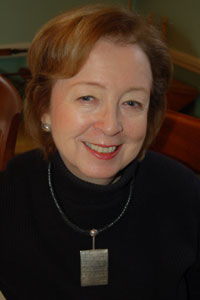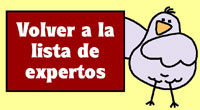From 1994 to 2001, Dr. Vargas-Barón served
as Deputy Assistant Administrator for Human Capacity Development
of USAID, leading programs for educational development, professional
training, and telecommunications. She established an agency-wide
Goal for Basic Education and developed programs for: HIV/AIDS-affected
children; ECD; workforce development; secondary and youth education;
information technologies; basic education to combat abusive
child labor; girls’ education; food for basic education;
and higher education partnerships. She established several inter-agency
working groups, and represented the U.S. at the World Education
Forum in Dakar, and several other global conferences. She helped
prepare the “Education for All” Dakar Framework
for Action and she was a prime contributor to G-8 initiatives
for basic education.
Currently, she directs The RISE
Institute, an international NGO that focuses on education and
child development, and she consults for many international agencies.
She has worked in over 50 countries of Africa, the Middle East,
Latin America, Eastern Europe, and Central Asia. She is on the
Board of the Consultative Group for ECCD, the ECD Advisory Board
of the Open Society Institute, and the Steering Committee of
ADEA’s ECD Working Group in Africa.
Dr. Vargas-Barón’s
approach to ECD is integrative and participatory. She is committed
to strategic planning, building partnerships, promoting inter-agency
collaboration, and designing, managing and evaluating innovative
programs. She is the author of several books, chapters, articles,
and other documents, including:
Going to Scale: Early Childhood
Development in Latin America. (2009).
With Ulf Janson. Early Childhood Intervention, Special Education
and Inclusion: a Focus on Belarus. (2009).
Co-editor of journal with Sian Williams. “Early Childhood
Investment, Finance and Costs.” (2008). Coordinators’
Notebook.
“Participatory Early Childhood Development Policy Planning
in Francophone West Africa” chapter in Africa’s
Future, Africa’s Challenge: Early Childhood Care and Development
in Sub-Saharan Africa. (2008).
Formative Evaluation of Parenting Programmes in Belarus, Bosnia
and Herzegovina, Georgia and Kazakhstan, (Includes international
standards for parenting programmes.) (2006).
With Robert J. Melton. “Health Promotion and Early Childhood
Development: Some Emerging Global Research Issues,” in
Combating Disease and Promoting Health, Vol. III, Global Forum
Update on Research for Health. (2006).
“Payroll Taxes for Child Development: Lessons from Colombia,”
(UNESCO Policy Brief on Early Childhood. (2006).
With A. Lawrence Chickering, P. Edward Haley, Isobel Coleman.
Strategic Foreign Assistance: Civil Society in International
Security. (2006).
Planning Policies for Early Childhood Development: Guidelines
for Action. (2005 (Published also in French, Spanish, and Russian.)
With Hernando Bernal Alarcón, editors. From Bullets to
Blackboards: Education for Peace in Latin America and Asia.
(2005).
Impact Evaluation: Early Childhood Development Virtual University
in Sub-Saharan Africa. (2005).
Policy Analyses and Recommendations on Early Childhood Development
and HIV/AIDS in Mainland Tanzania and Zanzibar. (2004).
Final Report, Project to Support National Policy Planning for
Early Childhood Development in Three Countries of West Africa.
(29 February 2004).
"State Financing of Higher Education Partnerships for Trade
and Development" chapter in Technology and the Educational
Workplace: Understanding Fiscal Impacts. (1998).
With Maureen McClure, "The New Heroics of Generational
Commitment: Education in Nations with Chronic Crises" in
Education as a Humanitarian Response. (1998).
Austin's Best Investment: Young Children, Five-Year Plan and
Budget Projections. (1993).
With Martin Arocena and Paul Davis. "CEDEN's Parent-Child
Program," in Fair Start for Children: Lessons Learned from
Seven Demonstration Projects. (1992).
With Martin Arocena and Paul Davis. The Parent-Child Program:
Research Report. (1990).
Policy-Planning for Culturally Comprehensive Special Health
Services, a US policy paper. (1990).
With Martin Arocena and Paul Davis. "The Under-utilization
of Social and Health Services by Hispanic Families" in
Proceedings of the Hispanic Health Status Symposium. (1988).
Non-Formal Education in Lesotho: A National Study for Policy-Planning
and Program Development. (1983).
Non-Formal Education: Assessment at the National Level. (1980).
With Wilson Velandia and Gilberto Bello. (1975). La educación
no-formal en Colombia: hacia un diagnóstico de su realidad.


